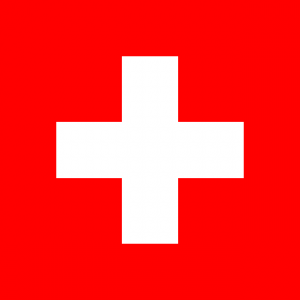Language/Swiss-german/Grammar/How-to-Use-Have
Hi Swiss German learners! 😊
In this lesson, we will learn how to use the verb "have" in Swiss German. We will look at the different forms of the verb and how to use it in different contexts.
Introduction
The verb "have" is an important verb in Swiss German. It is used to express possession, relationships, and other ideas. In this lesson, we will look at the different forms of the verb and how to use it in different contexts.
Forms of the Verb
The verb "have" has two forms in Swiss German: "habe" and "hast". The form "habe" is used when the subject is singular and the form "hast" is used when the subject is plural.
Singular
The singular form of the verb "have" is "habe". This form is used when the subject is singular. For example:
- Ich habe ein Buch. (I have a book.)
- Du hast ein Buch. (You have a book.)
Plural
The plural form of the verb "have" is "hast". This form is used when the subject is plural. For example:
- Wir haben ein Buch. (We have a book.)
- Ihr habt ein Buch. (You have a book.)
Uses of the Verb
The verb "have" can be used in many different ways in Swiss German. Here are some of the most common uses:
Possession
The verb "have" can be used to express possession. For example:
- Ich habe ein Auto. (I have a car.)
- Du hast ein Haus. (You have a house.)
Relationships
The verb "have" can also be used to express relationships. For example:
- Ich habe einen Bruder. (I have a brother.)
- Du hast eine Schwester. (You have a sister.)
Other Ideas
The verb "have" can also be used to express other ideas. For example:
- Ich habe Hunger. (I am hungry.)
- Du hast Durst. (You are thirsty.)
Examples
Here are some examples of the verb "have" in Swiss German:
| Swiss German | Pronunciation | English Translation |
|---|---|---|
| Ich habe ein Buch. | /ɪç ˈhaːbə ˈaɪn bʊx/ | I have a book. |
| Du hast ein Haus. | /du ˈhaːst ˈaɪn ˈhaʊs/ | You have a house. |
| Wir haben ein Auto. | /viːr ˈhaːbn ˈaɪn ˈaʊto/ | We have a car. |
| Ihr habt eine Schwester. | /iːr ˈhaːpt ˈaɪnə ˈʃvɛstər/ | You have a sister. |
| Sie hat Hunger. | /ziː ˈhaːt ˈhʊŋgər/ | She is hungry. |
| Er hat Durst. | /ɛr ˈhaːt ˈdʊrst/ | He is thirsty. |
Conclusion
In this lesson, we have looked at the different forms of the verb "have" in Swiss German and how to use it in different contexts. To improve your Swiss German Grammar, you can also use the Polyglot Club website. Find native speakers and ask them any questions!
➡ If you have any questions, please ask them in the comments section below.
➡ Feel free to edit this wiki page if you think it can be improved. 😎

